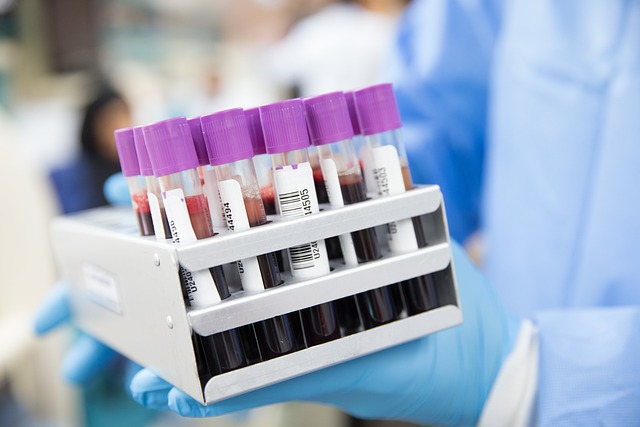A UK Cholesterol Blood Test is a vital tool for managing health, monitoring LDL (bad) and HDL (good) cholesterol levels, and promoting cardiovascular well-being. Preparation requires fasting, avoiding interfering medications, and ensuring a quiet environment. Accurate results depend on strict adherence to test kit instructions. Interpretations of readings guide lifestyle changes or medical interventions, with optimal total cholesterol below 5mmol/L and repeat testing for progress tracking.
In today’s digital era, accessing healthcare at home is more convenient than ever. One vital test that individuals in the UK can now perform easily is the UK Cholesterol Blood Test. This simple procedure allows for early detection of high cholesterol levels, a key risk factor for heart disease and stroke. Understanding how to prepare and interpret this test can empower folks to take charge of their health. This article guides you through the process, offering insights into why it matters and what steps to take after getting your results.
- Understanding UK Cholesterol Blood Test: Why It Matters for Your Health
- Preparing for a Home Cholesterol Test: What You Need to Know
- Interpreting Results and Next Steps After a Home Cholesterol Blood Test
Understanding UK Cholesterol Blood Test: Why It Matters for Your Health
In the UK, a cholesterol blood test is a vital tool in managing and maintaining your health. This simple procedure measures the levels of low-density lipoprotein (LDL) and high-density lipoprotein (HDL) cholesterol in your blood. LDL, often referred to as ‘bad’ cholesterol, can build up in your arteries and increase the risk of heart disease and stroke. Conversely, HDL, or ‘good’ cholesterol, helps remove LDL from your bloodstream, playing a protective role.
Understanding these levels is crucial for several reasons. A UK cholesterol blood test result above 4.0 mmol/L indicates elevated LDL cholesterol, which may require lifestyle changes or medical intervention. On the other hand, results below 1.8 mmol/L suggest low HDL levels, highlighting a potential need for healthier habits to boost this ‘good’ cholesterol. Regular monitoring through such tests enables individuals to take proactive steps towards better cardiovascular health and overall well-being.
Preparing for a Home Cholesterol Test: What You Need to Know
Preparing for a home cholesterol blood test, such as those available in the UK, is essential to ensure accurate results. Before taking the test, it’s important to fast for at least 10-12 hours. This means avoiding food and drink (except water) during this time. Some medications may also interfere with test accuracy, so consult your healthcare provider about any prescriptions you’re currently taking.
On the day of the test, find a quiet, comfortable place in your home where you won’t be disturbed for around 15 minutes. Wash your hands thoroughly to avoid introducing bacteria or germs that could affect the sample. Follow the instructions provided with your test kit carefully, ensuring you have all the necessary materials ready. This typically includes a blood collection device and a container for sending your sample to a laboratory for analysis.
Interpreting Results and Next Steps After a Home Cholesterol Blood Test
After conducting a UK cholesterol blood test at home, understanding the results is an essential next step. The test will provide a reading for total cholesterol, LDL (low-density lipoprotein), HDL (high-density lipoprotein), and sometimes triglycerides. Different levels have different meanings; for instance, a total cholesterol level below 5mmol/L is considered optimal, while between 5-7mmol/L is on the border of high. If your results show elevated cholesterol levels, it’s crucial to interpret this as a signal for lifestyle changes or further medical evaluation.
The next steps could include consulting with a healthcare professional who can advise on diet modifications, exercise plans, and other lifestyle interventions to lower cholesterol naturally. They might also recommend repeat testing at regular intervals to track progress and assess the effectiveness of implemented changes. If necessary, prescription medications may be considered as part of a comprehensive strategy to manage cholesterol levels effectively.
In light of the above discussions, it’s clear that performing a UK Cholesterol Blood Test at home can be a convenient and effective way to monitor your health. By understanding the test’s importance, preparing adequately, and interpreting the results correctly, you can take informed steps towards managing your cholesterol levels and overall well-being. Remember that early detection and proactive measures are key to preventing potential health issues.
